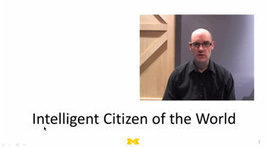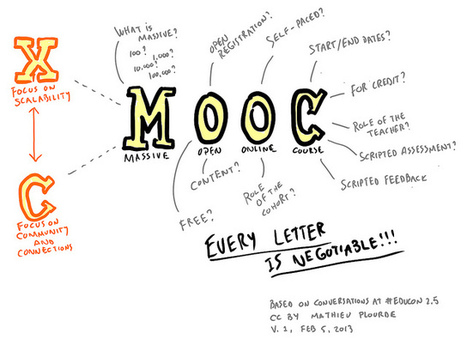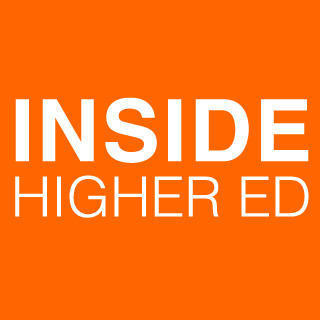MOOCs on the Move: How Coursera Is Disrupting the Traditional Classroom by Knowledge@Wharton, the online business journal of the Wharton School.
Comment: good, sensible interview with Coursera's Daphne Koller, about the difference between xMOOCs and traditional education, about credits and certificates, about (peer) assessment, about the business model. Intesting is her toned-down prediction for where Coursera will be in 10 years time:
"I also think that in five to 10 years, from the perspective of the higher education ecosystem, people will look back on the 20th century and say, "I can't believe that we spent so much of our students' time shoveling them into auditoria and having them sit there for 75 minutes while somebody lectured at them." We will all clearly recognize that this is not the best form for getting people to learn material and use it effectively. I think our notion of what makes for a good education will shift drastically.
That's right, at least I hope, but that was not the question. I would have loved to hear what she thinks Coursera's or for that matter the MOOCs' role will have been in this. For if we let people watch the sage on the stage through a computer screen rather than in an auditorium, nothing has fundamentally changed. And that is what we need. And there may be room for MOOCs then, or not. (peter sloep, @pbsloep)
Via
Peter B. Sloep



 Your new post is loading...
Your new post is loading...




























The article analyses the behaviour of some 150,000 registrants for the inaugural edX course — 6.002x: Circuits and Electronics, which was offered in the spring of 2012. The analysis is based on the log files for the course, constituting an exemplary case of the application of learning analytics in action (although the authors don’t use that term at all). It consists of two parts. First, the authors take the data of all registrants into account, later to focus on those relatively few (about 10,000) who managed to earn a course certificate.
Overall, this is an interesting and useful study. I have two minor qualms with it. First, the analysis focuses on those registrants who passed the exam and earned a certificate. Although the 10,000 students who managed to do this is a sizable number, it pales with the 150,000 who registred in the first place. Second, and as far as I am concerned more importantly, no attempts is made to frame the discussion in the context of a particular learning theory. However, these qualms do not detract from the value of this study, it deserves to be widely read, particularly by people who are engaged in learning analytics (who might miss it as that term is not used). @pbsloep
(see for a more extensive discussion of the article my blog post at http://pbsloep.blogspot.nl/2014/04/who-does-what-in-massive-open-online.html)